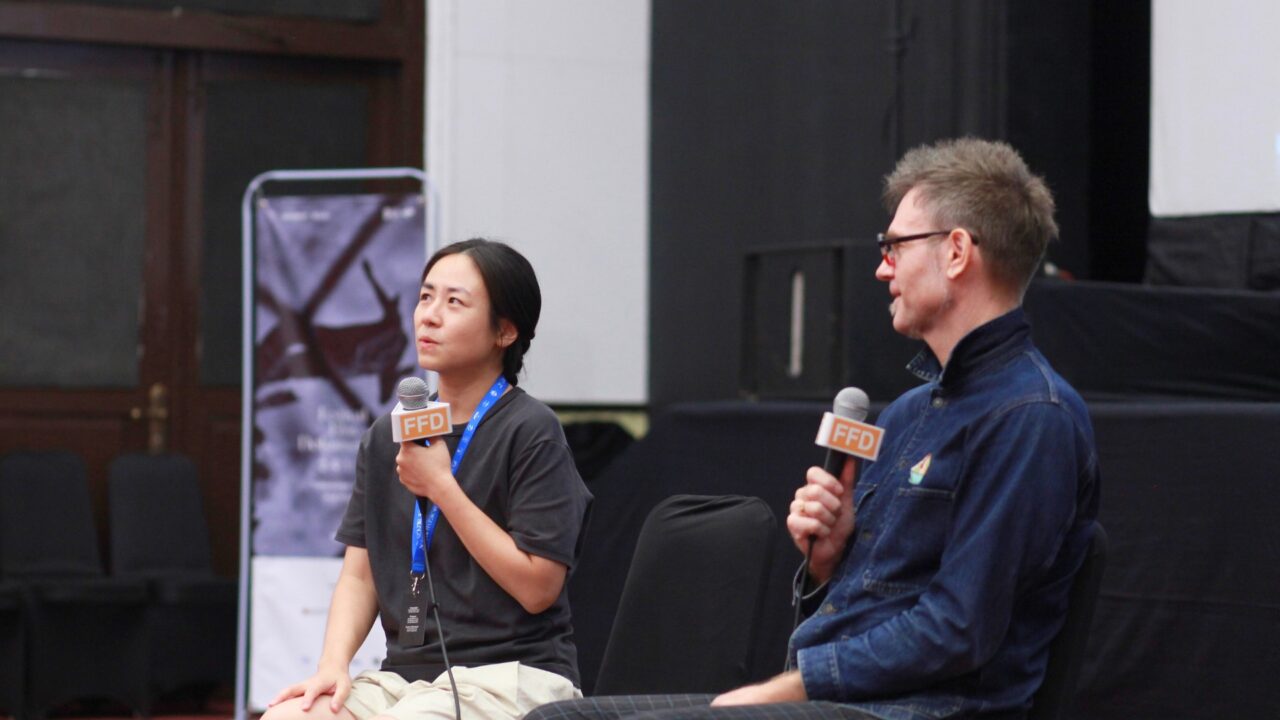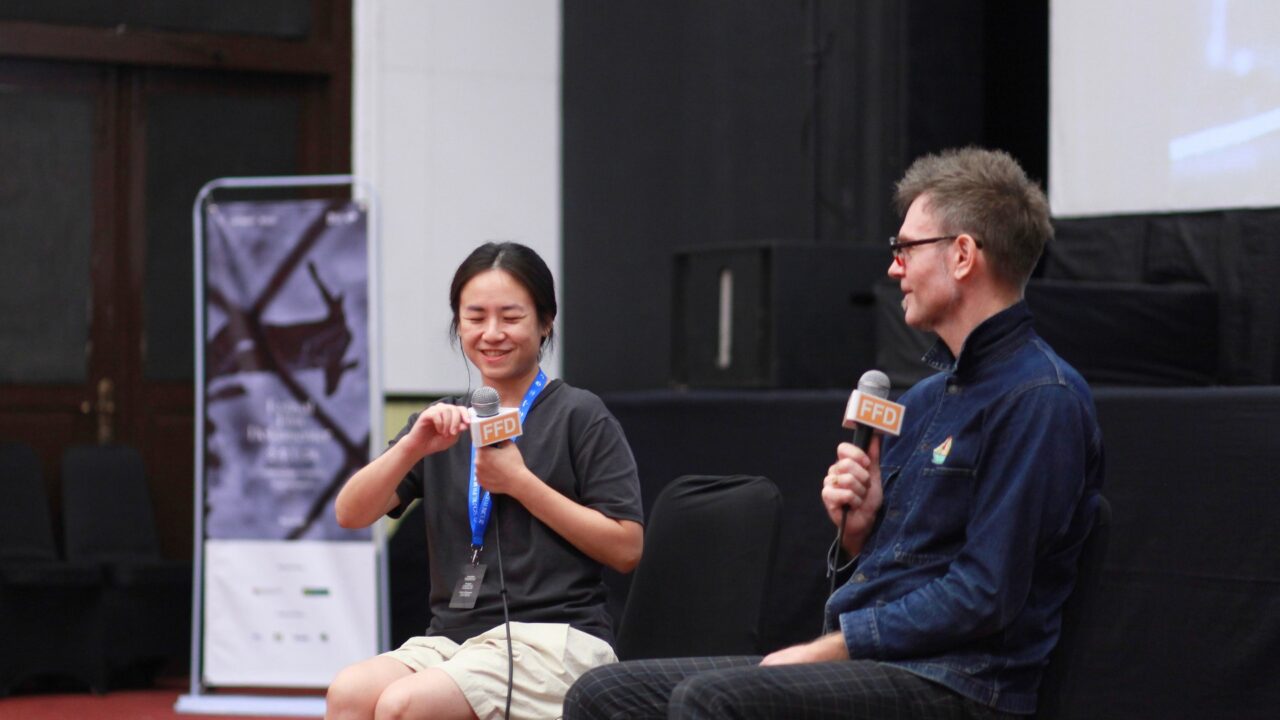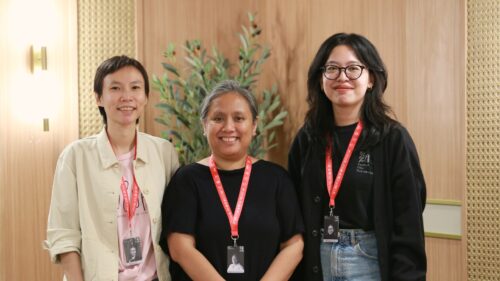“We collected footage with a duration of up to 400 hours. This experience had a big impact on our lives, so we wanted to share every detail,” said editor Wan-Yu Lin, familiarly called Jessica. The statement came after the screening of the film After the Snowmelt (Yi-Shan Lo, 2024) at the Militaire Societeit, Taman Budaya Yogyakarta, in the International Feature-Length Competition program. That night, Yogyakarta was blanketed in clouds and chilly air, as if they knew how to set the perfect mood to immerse ourselves in a deep discussion about the experiences of two close friends, Chun and Yueh, who got trapped in a snowy cave in Nepal for 47 days. In the middle of the audience, editor Jessica Wan-Yu Lin joined in to share her views on the process behind the film in a question-and-answer session.
Regarding the film’s slow pace and numerous moments of silence, did the director intend for the audience to feel the quietness experienced by Chun and Yueh while trapped in the cave?
We saw Chun and Yueh’s tragedy as a major impact on our lives. We wanted to expose every detail that we find meaningful. Director Yi-Shan Lo’s trip to Nepal intended to understand what happened to them, then, became crucial. Thus, there was no specific intention to create quietness, we just wanted to show the details that were considered important. The director was still learning to make a documentary at the time, which made her record a lot of footage, up to 400 hours, in an attempt to capture everything.

Furthermore, what research techniques or approaches did you choose to ensure that this documentary does not come across as exploitative?
Director Yi-Shan Lo took history in school, back then, which made her is used to writing and mapping out an event meticulously. As an editor, I also did research on their relationship through various sources, such as Facebook, Messenger, and their old phones. I found a lot of things, but we were not able to share all of them. A thing that could be done to ensure that this film is not considered exploitative was maintaining privacy. We only shared what was relevant. Therefore, the whole film was made from the director’s point of view, without glorifying any side, because that is the fairest way to execute.
With an empathetic approach and earnest research, After the Snowmelt (2024) is a tribute to the human experience. Jessica emphasized that the film conveys an authentic story from the director’s point of view as a friend, without sacrificing the integrity of the subjects involved.
Covered by Tirza Kanya on November 4, 2024. (Ed. Vanis/Trans. Shafira Rahmasari)



